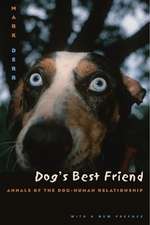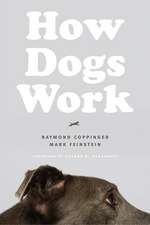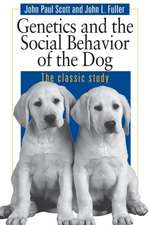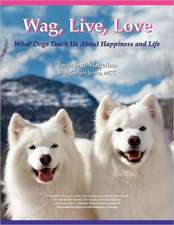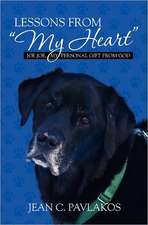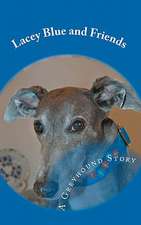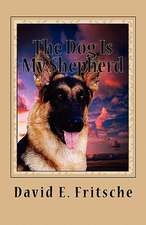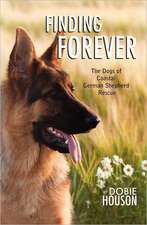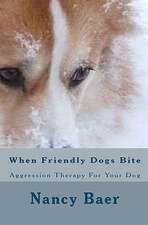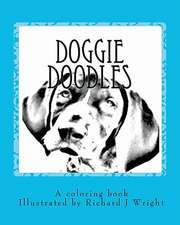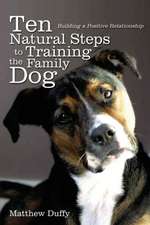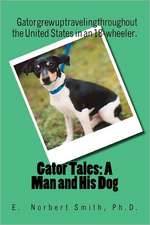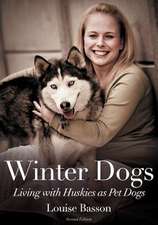Dogs: A New Understanding of Canine Origin, Behavior and Evolution
Autor Raymond Coppinger, Lorna Coppingeren Limba Engleză Paperback – oct 2002
Biologists, breeders and trainers, and champion sled dog racers, Raymond and Lorna Coppinger have more than four decades of experience with literally thousands of dogs. Offering a scientifically informed perspective on canines and their relations with humans, the Coppingers take a close look at eight different types of dogs—household, village, livestock guarding, herding, sled-pulling, pointing, retrieving, and hound. They argue that dogs did not evolve directly from wolves, nor were they trained by early humans; instead they domesticated themselves to exploit a new ecological niche: Mesolithic village dumps. Tracing the evolution of today's breeds from these village dogs, the Coppingers show how characteristic shapes and behaviors—from pointing and baying to the sleek shapes of running dogs—arise from both genetic heritage and the environments in which pups are raised.
For both dogs and humans to get the most out of each other, we need to understand and adapt to the biological needs and dispositions of our canine companions, just as they have to ours.
For both dogs and humans to get the most out of each other, we need to understand and adapt to the biological needs and dispositions of our canine companions, just as they have to ours.
Preț: 133.58 lei
Nou
Puncte Express: 200
Preț estimativ în valută:
25.57€ • 26.35$ • 21.58£
25.57€ • 26.35$ • 21.58£
Carte disponibilă
Livrare economică 10-24 februarie
Preluare comenzi: 021 569.72.76
Specificații
ISBN-13: 9780226115634
ISBN-10: 0226115631
Pagini: 352
Ilustrații: 27 halftones, 9 charts
Dimensiuni: 152 x 229 x 25 mm
Greutate: 0.49 kg
Ediția:1
Editura: University of Chicago Press
Colecția University of Chicago Press
ISBN-10: 0226115631
Pagini: 352
Ilustrații: 27 halftones, 9 charts
Dimensiuni: 152 x 229 x 25 mm
Greutate: 0.49 kg
Ediția:1
Editura: University of Chicago Press
Colecția University of Chicago Press
Notă biografică
Raymond Coppinger is a professor of biology at Hampshire College. He is the author of Fishing Dogs and coauthor of Wheelchair Assistance Dogs.
Lorna Coppinger is the award-winning author of The World of Sled Dogs. Together they founded Hampshire's Livestock Dog Project.
Lorna Coppinger is the award-winning author of The World of Sled Dogs. Together they founded Hampshire's Livestock Dog Project.
Cuprins
Acknowledgments
Preface: The Right Kind of Dog
Introduction: Studying Dogs
Part I. The Evolution of the Basic Dog: Commensalism
Chapter 1. Wolves Evolve into Dogs
Chapter 2. Village Dogs
Chapter 3. Natural Breeds
Part II. Working Dogs and People: Mutualism
Chapter 4. Developmental Environments
Chapter 5. The Physical Conformation of a Breed
Chapter 6. Behavioral Conformation
Part III. Are People the Dog's Best Friend? Parasitism, Amensalism, and Dulosis
Chapter 7. Household Dogs
Chapter 8. Assistance Dogs
Part IV. The Tail Wags the Dog
Chapter 9. What's in the Name Canis familiaris?
Chapter 10. The Age of the Dog
Chapter 11. Why Dogs Look the Way They Do
Chapter 12. Conclusion
Bibliography
Index
Preface: The Right Kind of Dog
Introduction: Studying Dogs
Part I. The Evolution of the Basic Dog: Commensalism
Chapter 1. Wolves Evolve into Dogs
Chapter 2. Village Dogs
Chapter 3. Natural Breeds
Part II. Working Dogs and People: Mutualism
Chapter 4. Developmental Environments
Chapter 5. The Physical Conformation of a Breed
Chapter 6. Behavioral Conformation
Part III. Are People the Dog's Best Friend? Parasitism, Amensalism, and Dulosis
Chapter 7. Household Dogs
Chapter 8. Assistance Dogs
Part IV. The Tail Wags the Dog
Chapter 9. What's in the Name Canis familiaris?
Chapter 10. The Age of the Dog
Chapter 11. Why Dogs Look the Way They Do
Chapter 12. Conclusion
Bibliography
Index
Recenzii
"Dogs will be interesting to anyone who has ever wondered about the origin of their favorite mutt's species."
"In the managed evolution of dogs, which has produced a remarkable range of working and hunting breeds, the writers perceive both environmental and genetic factors. Through these new perceptions regarding the mechanics and tenacity of inbred and enhanced behavioral traits, humans can better understand the primal biological motivations of their canine companions. Chock full of both scientific studies and personal experiences, this fast-paced, absorbing book deserves a wide audience."
"Anyone with a dog should not be without this book."

